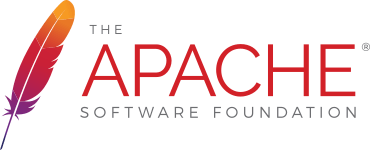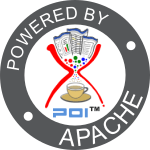Apache POI - How To Build
JDK Version
POI 4.0 and later require JDK version 1.8 or later.
POI 3.11 and later 3.x versions require JDK version 1.6 or later.
POI 3.5 to 3.10 required the JDK version 1.5 or later. Versions prior to 3.5 required JDK 1.4+.
Install Apache Ant
The POI build system requires Apache Ant version 1.8 - 1.9.x for Java 1.6 and higher. Newer versions (1.10.x) require Java 8 or higher.
The current source code has been tested to work with Ant version 1.9.x and 1.10.x.
Remember to set the ANT_HOME environment variable to where Ant was installed/extracted and add ANT_HOME/bin to your shell's PATH.
If you are unsure about the correct value for ANT_HOME, search your file system for "ant.jar". This file will be in the directory %ANT_HOME%/lib." For example, if the path to ant.jar is "C:/Programs/Ant/lib/ant.jar", then set ANT_HOME to "C:/Progams/Ant".
Install Apache Forrest
The POI build system requires Apache Forrest to build the documentation.
Specifically, the build has been tested to work with Forrest 0.90.
Remember to set the FORREST_HOME environment variable.
Building Targets with Ant
The main targets of interest to our users are:
| Ant Target | Description |
|---|---|
| clean | Erase all build work products (ie. everything in the build directory |
| compile | Compiles all files from main, ooxml and scratchpad |
| test | Run all unit tests from main, ooxml and scratchpad |
| jar | Produce jar files |
| assemble | Produce .zip and tar.gz distribution packages |
| docs | Generate all documentation (Requires Apache Forrest) |
| jenkins | Runs the tests which Jenkins, our Continuous Integration system, does. This includes the unit tests and various code quality checks. |
Working with Eclipse
Apache POI includes a pre-defined Eclipse project file which can be used to quickly get set up in the Eclipse IDE.
First make sure that Java is set up properly and that you can execute the 'javac' executable in your shell.
Next, open Eclipse and create either a local SVN repository, or a copy of the Git repository, and import the project into Eclipse.
Right-click on "build.xml", and select "Run As / Ant Build...". The "Edit Configuration" dialog should appear. In the "Targets" tab, select the "Compile" target and click on "Run".
Note: when executing junit tests from within Eclipse, you might need to set the system property "POI.testdata.path" to the actual location of the 'test-data' directory to make the test framework find the required test-files. A simple value of 'test-data' usually works.
Working with IntelliJ Idea
Import the Gradle project into your IDE. Execute a build to get all the dependencies and generated code in place.
Note: when executing junit tests from within IntelliJ, you might need to set the system property "POI.testdata.path" to the actual location of the 'test-data' directory to make the test framework find the required test-files. A simple value of 'test-data' usually works.
Using Maven
Building Apache POI using Maven is not currently officially supported, and we strongly suggest continuing to use the official Ant build.
However, including Apache POI within your own Maven project is fully supported, and widely used. Please see the Components Page for details of the Maven artifacts available.
Setting environment variables
Linux: help.ubuntu.com, unix.stackexchange.com
Windows: en.wikipedia.org
by Glen Stampoultzis, Tetsuya Kitahata, David Fisher






